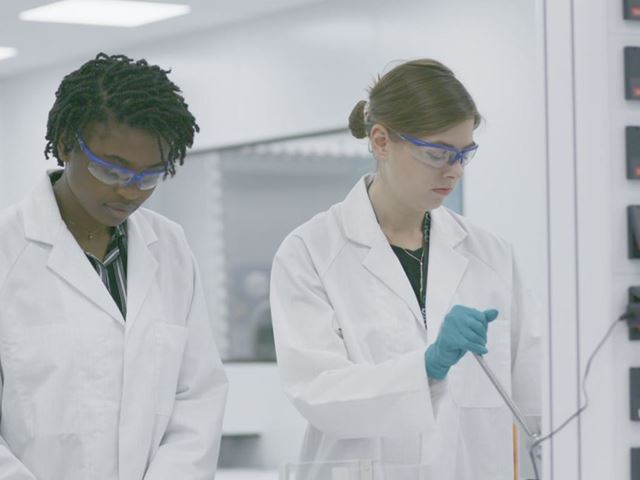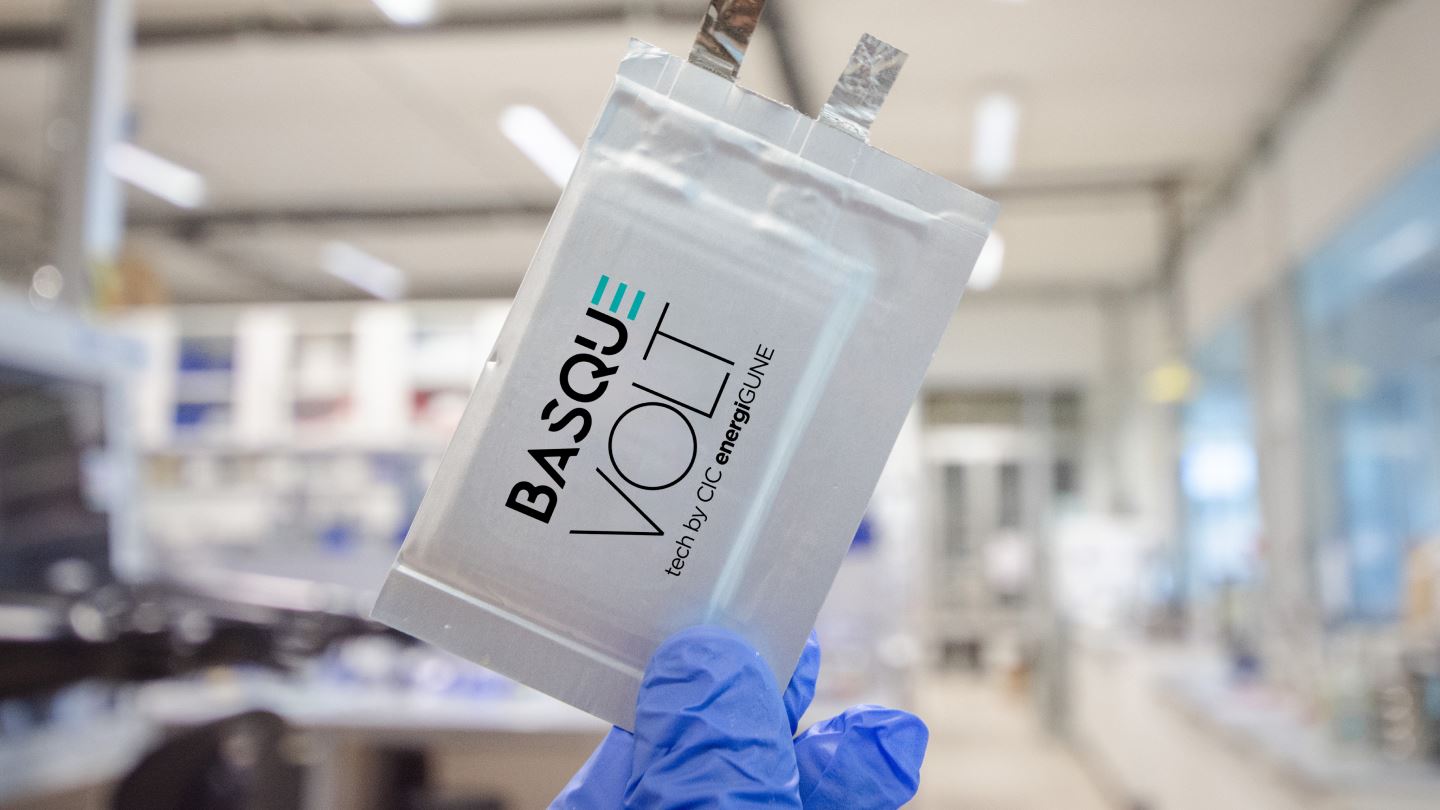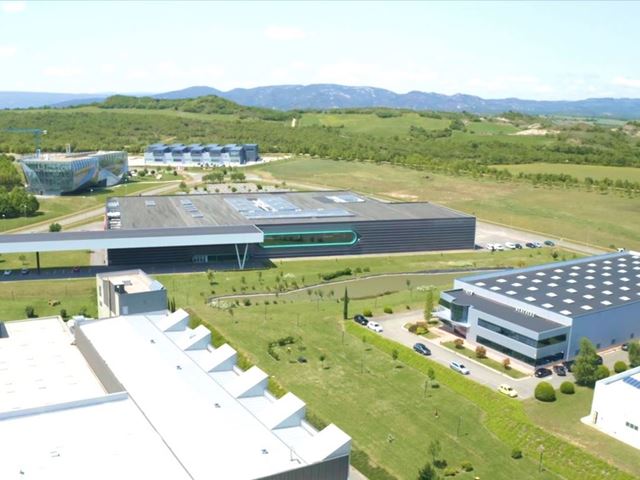
- Latest: Welcome to Auto Futures - Mobility News, Features, Exclusives and More...
- Latest: Alpine Alpenglow Hy4 Unveiled With Hydrogen-Powered Internal Combustion Engine
- Latest: Daimler Trucks Presents Autonomous Freightliner eCascadia Technology Demonstrator
- Latest: China's NIO & GAC Announce Partnership on EV Charging & Battery Swapping
- Latest: Automobili Pininfarina Unveils Electric Battista Cinquantacinque
- Latest: Automotive Technology That "Gets Smarter With Every Mile Driven" - Potential CEO
Developing the Next Generation of Solid-State Lithium Batteries - BASQUEVOLT's CEO, Francisco Carranza
Adrian Smith
- Jul 18 2023

The cost of electriic vehicle (EV) batteries is one of the main barriers for the wider adoption of electric mobility. BASQUEVOLT, a public-private company backed by the Basque Country (Euskadi) government, believes it has the answer. It's developing the next generation of solid-state lithium batteries.
"Since the beginning BASQUEVOLT has focused its efforts in designing a 100% European technical solution that comes with a more simple and a more efficient manufacturing process that uses less electricity, and has a much lower CO2 footprint," BASQUEVOLT's CEO, Francisco Carranza, tells Auto Futures.
"Producing more with less is critical," he adds.
A solid-state battery is composed of solid electrodes and a solid (or semi solid) electrolyte, instead of the liquid electrolytes found in conventional lithium-ion (Li-ion) batteries. They can provide potential solutions for many of the problems of liquid Li-ion batteries, such as flammability, high cost or low energy density.
"Overall, we are aiming to decrease the total cost of a battery pack by around 30%, a CAPEX reduction for battery production around 30%, +50% energy density and reduce the CO2 footprint considerably (around 40%)," says Carranza.
As part of its net-zero industrialisation strategy, the Basque Country government is supporting the development of the solid-state battery technology as it could boost the economy and generate jobs for the region, Spain, and Europe.
"It is a visionary investment in the future of the post-fossil fuel economy that will generate jobs, attract global talent, and create a new industry in the territory."

Meeting Market Demands
In March, 2023, the company inaugurated its new BASQEVOLT Innovation Centre CIB located in the city of Vitoria-Gasteiz. The ceremony was held as part of its first anniversary celebrations.
"It is where the BASQUEVOLT magic happens," says Carranza.
The CIB is where the batteries and electrolyte are tested and assembled, and where the first prototype battery is expected to be manufactured.
"In this first phase the objective of the company is to establish an organization and a team among the best in the industry worldwide and to confirm the potential of the technology for the automotive industry, stationary market and other applications that need state-of-the-art batteries. The CIB plays a crucial role in driving technological advancements, improving existing products, and creating new solutions to meet market demands."
"This is the place were motivation, expertise and technology are blending. A team of more than 50 people, as of today, combining the best of electrochemical experts, industry leaders and gigafactories talents. More than 13 nationalities are working in the CIB showing the diversity of cultures and what they can bring to the company, which is a key value for us." he adds.

Challenging Business Models
BASQUEVOLT has been testing its 1Ah cell in its laboratories for some time. In its current roadmap, the first 20 Ah prototypes will be produced in the first quarter of 2024, and the first 80 Ah (EV size) prototypes by the end of 2024.
"The 20Ah cell is undoubtedly an important milestone for Basquevolt as it is the prelude to the 80Ah cells that will be used for applications in the electric mobility sector. Developing this cell size is part of our R&D plan, allowing us to reach the end of the road with a product that corresponds to the performance, safety and cost expectations set by Basquevolt and the market," says Carranza.
"The first production line of 1GWh will be operational by end of 2025. The mass production is expected to start by the end of 2027," he adds.
Finally, we asked Carranza what e-mobility and EV charging will look like by 2030.
"The mass adoption of electric vehicles will require a synchronised rollout of the new charging-point infrastructure, power grid upgrades and renewable energy capabilities to be more flexible and sustainable moving forward. Making EV charging stations available, will require a deployment of charging units, joint with interventions on the electric grid infrastructure of the different EU Countries and worldwide," he says.
"Regarding the e-mobility model, probably some regions will see some drops in car sales in favour of new models like car-sharing. All the innovation being adopted at this moment, together with the electrification, is challenging the whole industry, the ancient business models and also society - challenging the way end user will consume and behave," concludes Carranza.
Popular Categories
